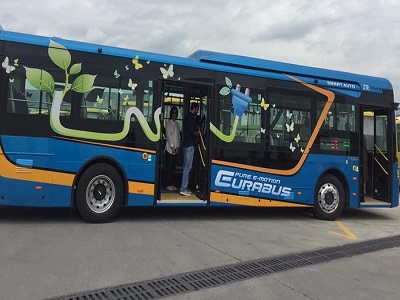- Details
On May 3, the US-based World Resource Initiative (WRI) published ‘How to Enable Electric Bus Adoption In Cities Worldwide’, which examines the process of adopting e-buses in sixteen case study cities. Tbilisi City Hall took the first couple of steps necessary to introduce the first electric bus in 2018 and is expected to scale up the number to 200 from 2020. Thus, this study could serve as guidance of what to look out for when changing existing bus fleets to e-buses. To smoothly adopt electric buses and make the process successful and sustainable, the report identifies four stages:
• Stage 0 to 1 centers around the reason why stakeholders wish to adopt e-buses in the first place. City officials and bus operators need to focus on whether e-bus adoption can match the city’s environmental targets. Before moving on to the next stage, stakeholders also need to ensure that there is infrastructure capacity that can handle the adjustment. This includes investigating whether the existing bus fleet hinders the introduction of e-busses, road conditions, electricity generation, and transmission and distribution ability.
- Details
On the 5th of June 2019, ISET and the Caucasus Environmental NGO Network (CENN) signed a memorandum of understanding (MoU). Under the scope of this MoU, new courses will be offered as part of ISET’s Bachelors and Master’s Programs; in the former, a course in environmental economics and circular economy will be offered as an elective, while for the latter, a course in environmental economics by Prof. Hans Wiesmeth will be available. These courses will equip students with the needed skills and knowledge to analyze environmental challenges from an economic perspective and offer policy solutions.
The course at the BA level will focus on the economic theory behind environmental economics, as well as show the student’s capabilities for introducing circularity in economic activities. It will also show the students how economic theory can be used for environmental stewardship. Furthermore, it will help them understand the entrepreneurial opportunities that can arise within the different value chains of a circular economy. This is referred to as environmental entrepreneurship in modern literature.












